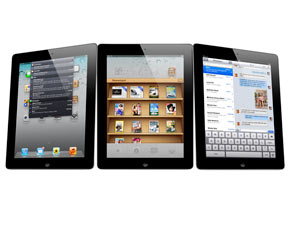MobileIron, a company that specialises in security and management for mobile apps, has introduced a suite of products for enterprise smartphones and tablets.
To tackle apps provisioning, the company has developed the MobileIron Application Delivery Network, which offloads the actual download of the apps onto a secure global backbone. It works in conjunction with MobileIron Apps@Work private app storefront for distributing enterprise apps.

The company has also developed a data loss protection product that secures documents sent via Microsoft ActiveSync or shared through SharePoint.
MobileIron Docs@Work provides secure transport, local storage, viewing and data wiping, the company said. E-mail attachments can be encrypted by MobileIron before they reach the device.
The iOS version enables iPad and iPhone users to decrypt and view the protected version. For Android it has introduced App Connect for Android.
Read our Security Think Tank series on the challenges and opportunities of smartphone security policy Part one - Jovi Umawing, communications and research analyst, GFI Software Part two - Peter Wenham, committee member of the BCS Security Forum strategic panel, and director, Trusted Management Part three - Adrian Davis, principal research analyst, Information Security Forum (ISF) Part four - John Pescatore, vice-president and distinguished analyst, Gartner Part five - Lannon Rowan, (ISC)2 member and security consultant at a mobile network operator Part six - Sarb Sembhi, chair of ISACA's government relations committee Part seven - Vladimir Jirasek, director of alliances, Cloud Security Alliance UK & Ireland Part eight - Phil Stewart, director of communications, ISSA UK
MobileIron said the suite creates a secure environment for mobile enterprise apps that prevents data loss, preserves the native user experience, and works across supported Android devices and iOS versions.
App Connect for Android is designed to provide a secure container for business apps. According to MobileIron, it encrypts data, provides a single sign-on, and segments professional data from personal data to enforce security and privacy, while retaining a native user experience.
Trusted apps can share data with each other, but not with personal apps on the device.





